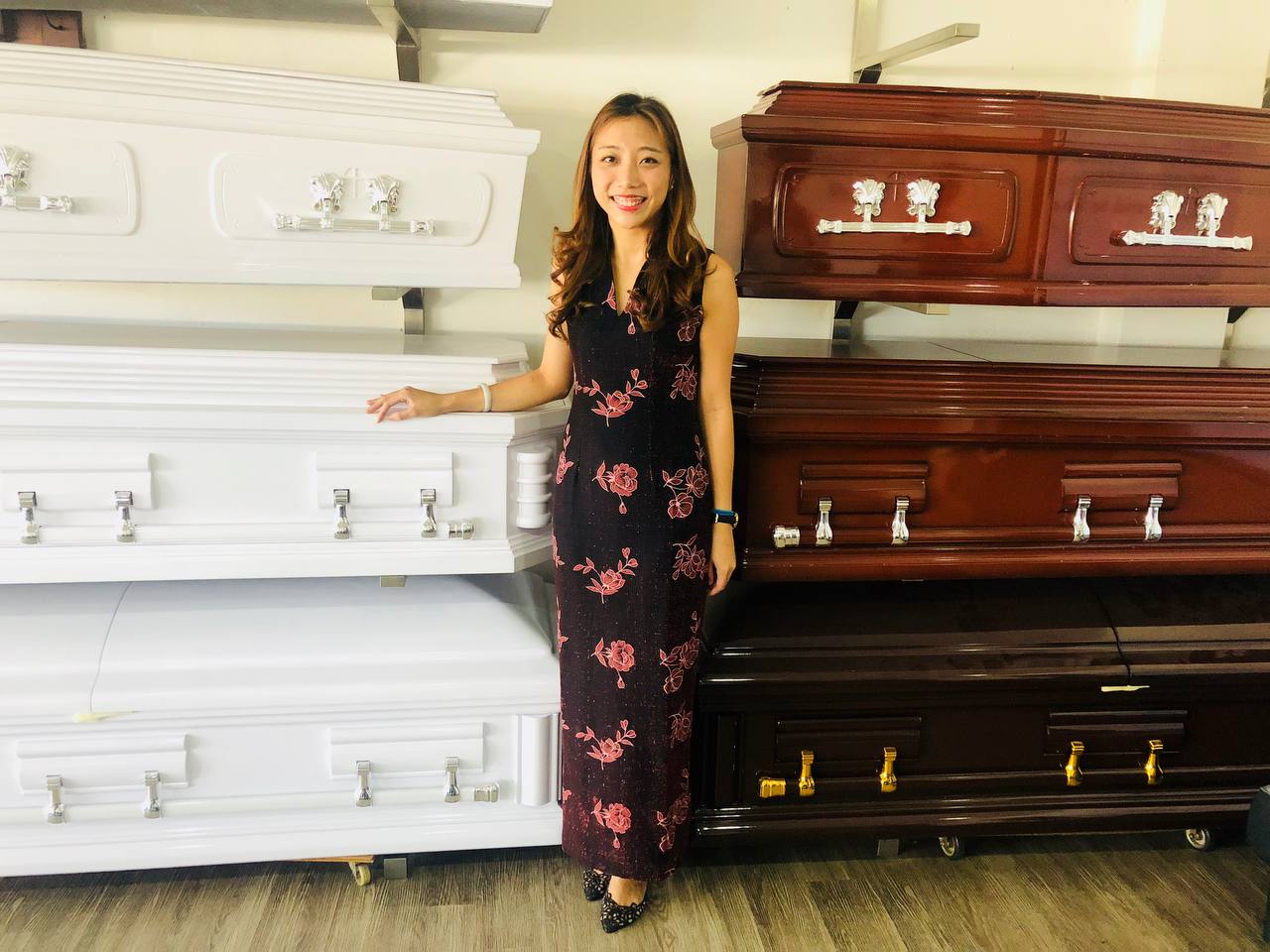In the world of funeral services, a funeral director plays a pivotal role in ensuring that families receive compassionate care during difficult times. If you're considering a career in this field or simply want to understand the responsibilities of a funeral director, this article is for you. We'll explore everything from their duties to the skills required to succeed in this profession.
Funeral directors are often seen as silent heroes who guide families through the complex process of planning a funeral. Their work is both emotional and technical, requiring a unique blend of empathy, organizational skills, and knowledge of legal requirements. Understanding their role can help you appreciate the value they bring to communities.
As we delve deeper into this topic, you'll learn about the educational requirements, career opportunities, and ethical considerations associated with being a funeral director. Whether you're a student exploring career options or someone looking to gain insight into this profession, this guide will provide you with all the information you need.
Read also:Unveiling Movierulz Telugu Movies 2024 Your Ultimate Guide To Downloading And Streaming
Table of Contents
- The Role of a Funeral Director
- Why Funeral Directors Are Important
- Educational Requirements for Funeral Directors
- Key Skills Every Funeral Director Should Have
- Career Opportunities in the Funeral Industry
- Ethical Considerations for Funeral Directors
- A Brief History of Funeral Directing
- The Impact of Technology on Funeral Services
- Common Challenges Faced by Funeral Directors
- The Future of Funeral Directing
The Role of a Funeral Director
A funeral director is responsible for managing the logistics and emotional aspects of funeral services. Their primary duties include arranging the details of the funeral, communicating with the deceased's family, and ensuring compliance with legal requirements. Funeral directors often work closely with clergy, cemetery staff, and other professionals to ensure a smooth and respectful process.
Some of the key responsibilities of a funeral director include:
- Coordinating with families to plan funeral services
- Preparing the deceased for burial or cremation
- Completing necessary paperwork, such as death certificates
- Providing emotional support to grieving families
- Managing the logistics of transporting the deceased
Funeral directors must possess a deep understanding of cultural, religious, and personal preferences to tailor their services accordingly. Their role is not just about logistics but also about offering compassion and guidance during a challenging time.
Why Funeral Directors Are Important
Funeral directors are crucial in helping families navigate the complex and emotionally charged process of planning a funeral. They provide a sense of stability and professionalism during a time of loss, ensuring that the deceased is treated with dignity and respect. Their expertise in navigating legal and logistical requirements is invaluable, especially for families who may be unfamiliar with the process.
According to the National Funeral Directors Association (NFDA), funeral directors play a vital role in preserving memories and traditions. They help families create meaningful tributes that honor the life of the deceased while providing closure and support. This role extends beyond the funeral itself, as many funeral directors offer aftercare services to support families in the long term.
How Funeral Directors Impact Communities
Funeral directors contribute to the well-being of communities by fostering a culture of remembrance and respect. They work closely with local organizations, religious institutions, and government agencies to ensure that families receive the support they need. Their commitment to ethical practices and professionalism helps build trust within the communities they serve.
Read also:5movierulz Kannada Movie 2024 Your Ultimate Guide To Latest Releases And Updates
Educational Requirements for Funeral Directors
Becoming a funeral director requires specialized education and training. Most countries mandate that aspiring funeral directors complete a degree in mortuary science or a related field. This education typically includes coursework in anatomy, chemistry, ethics, and business management. Additionally, students must complete an internship to gain hands-on experience in the field.
After completing their education, aspiring funeral directors must pass a licensing exam to practice legally. The requirements for licensing vary by jurisdiction, but most involve a combination of education, experience, and testing. Continuing education is often required to maintain licensure, ensuring that funeral directors stay up-to-date with industry standards and regulations.
Key Components of Mortuary Science Programs
- Anatomy and physiology
- Embalming techniques
- Psychology of grief
- Legal and ethical considerations
- Business management
Key Skills Every Funeral Director Should Have
To succeed as a funeral director, individuals must possess a combination of technical and interpersonal skills. Some of the essential skills include:
- Empathy: The ability to understand and share the feelings of grieving families
- Communication: Strong verbal and written communication skills to interact effectively with clients and colleagues
- Organizational skills: The ability to manage multiple tasks and timelines simultaneously
- Problem-solving: The capacity to address unexpected challenges and find solutions quickly
- Attention to detail: Ensuring that every aspect of the funeral service is executed with precision
These skills are crucial for providing exceptional service and building trust with clients. Funeral directors must also be adaptable, as each family's needs and preferences can vary significantly.
Career Opportunities in the Funeral Industry
The funeral industry offers a variety of career opportunities beyond the traditional role of a funeral director. Professionals in this field can specialize in areas such as embalming, cemetery management, or grief counseling. Additionally, advancements in technology have created new roles, such as virtual funeral planners and digital archivists.
According to the Bureau of Labor Statistics, the demand for funeral directors is expected to grow steadily as the population ages. This growth presents opportunities for those entering the field, particularly in urban areas with large populations. However, competition for positions may be high, emphasizing the importance of education and experience.
Emerging Trends in Funeral Careers
One of the most significant trends in the funeral industry is the increasing demand for eco-friendly and personalized services. Funeral directors who can offer green burials, cremation alternatives, and customized tributes are likely to attract more clients. Additionally, the integration of technology into funeral services, such as live streaming and virtual memorials, is creating new opportunities for innovation in the field.
Ethical Considerations for Funeral Directors
Ethics play a critical role in the work of funeral directors. They must adhere to strict codes of conduct to ensure that families receive fair and transparent service. This includes being honest about costs, respecting cultural and religious practices, and maintaining confidentiality. The NFDA provides guidelines for ethical behavior, emphasizing the importance of integrity and professionalism.
Funeral directors must also be mindful of potential conflicts of interest and avoid engaging in practices that could exploit vulnerable families. Transparency in pricing and clear communication about services are essential to building trust with clients. Ethical funeral directors prioritize the needs of the families they serve above all else.
A Brief History of Funeral Directing
The profession of funeral directing has evolved significantly over the centuries. In ancient times, funeral rites were often performed by family members or community leaders. As societies became more complex, specialized roles emerged to manage the logistics of death and burial. The modern funeral director emerged in the 19th century, particularly in the United States, during the Civil War era when embalming techniques became more widespread.
Today, funeral directing is a highly regulated profession with established standards and practices. The industry continues to evolve, incorporating new technologies and approaches to meet the changing needs of society. Understanding the history of funeral directing provides valuable context for appreciating the role these professionals play in contemporary life.
The Impact of Technology on Funeral Services
Technology has transformed the funeral industry in numerous ways, from streamlining administrative tasks to enhancing the experience for families. Digital tools now allow funeral directors to create virtual memorials, manage online obituaries, and facilitate live streaming of services for those who cannot attend in person. These innovations have made it easier for families to stay connected and honor their loved ones.
Additionally, advancements in preservation techniques and eco-friendly burial options have expanded the services funeral directors can offer. As technology continues to evolve, the industry is likely to see further innovations that enhance the quality and accessibility of funeral services.
Common Challenges Faced by Funeral Directors
Despite the rewards of the profession, funeral directors face several challenges in their work. One of the most significant challenges is balancing the emotional demands of the job with the need for efficiency and professionalism. Dealing with grief on a daily basis can take a toll on mental health, making self-care and support systems essential for long-term success.
Funeral directors must also navigate the complexities of changing regulations and consumer preferences. As societal attitudes toward death and mourning evolve, funeral directors must adapt to meet the needs of diverse clients. Staying informed about industry trends and best practices is crucial for maintaining relevance and effectiveness in the field.
Strategies for Overcoming Challenges
- Seeking professional development opportunities
- Building a strong support network of colleagues and mentors
- Practicing self-care and stress management techniques
- Embracing innovation and technology to improve services
The Future of Funeral Directing
The future of funeral directing is shaped by demographic changes, technological advancements, and evolving cultural norms. As the population ages and more people opt for alternative forms of burial, funeral directors will need to adapt to meet these changing preferences. Additionally, the increasing demand for personalized and eco-friendly services will drive innovation in the industry.
Looking ahead, funeral directors who are proactive in adopting new technologies and approaches are likely to thrive. By staying connected to their communities and prioritizing the needs of their clients, they can continue to provide meaningful and compassionate care during challenging times.
Conclusion
Funeral directors play a vital role in helping families navigate the complexities of death and mourning. From arranging logistics to offering emotional support, their work is both challenging and rewarding. By understanding the educational requirements, key skills, and ethical considerations associated with this profession, you can appreciate the dedication and expertise required to succeed as a funeral director.
We invite you to share your thoughts and experiences in the comments below. If you found this article helpful, consider sharing it with others who may benefit from the information. For more insights into the funeral industry and related topics, explore our other articles and resources. Together, we can honor the work of funeral directors and the communities they serve.


